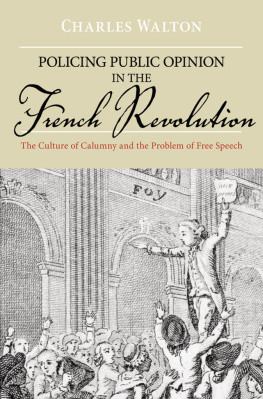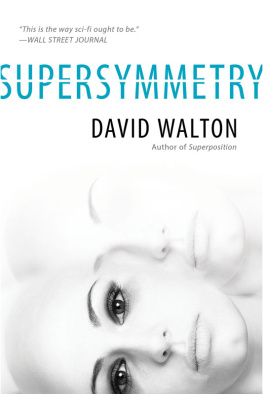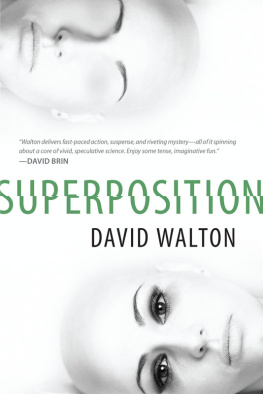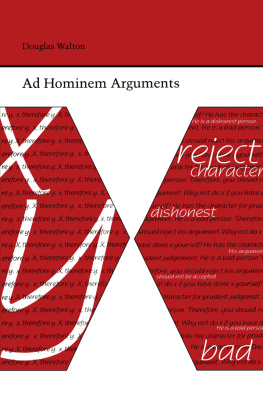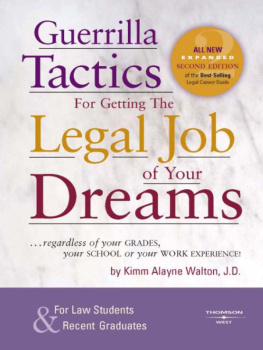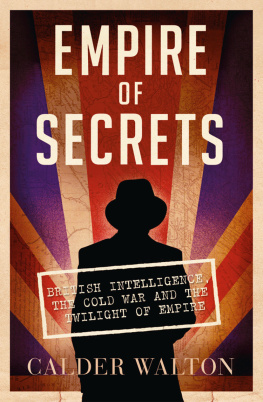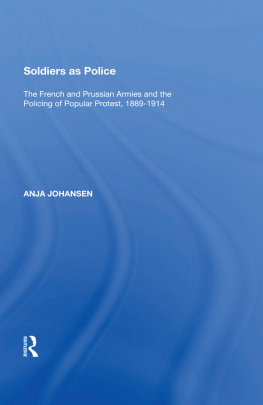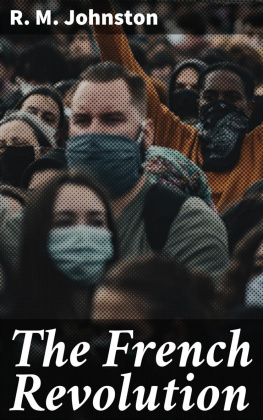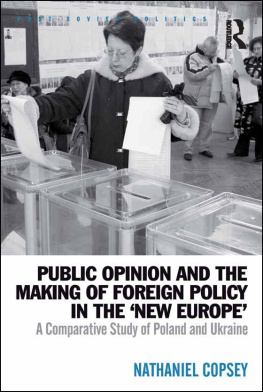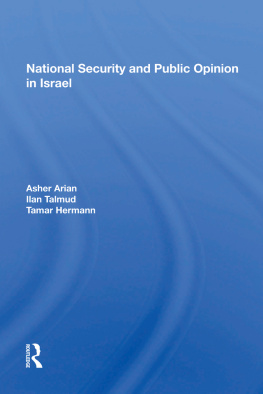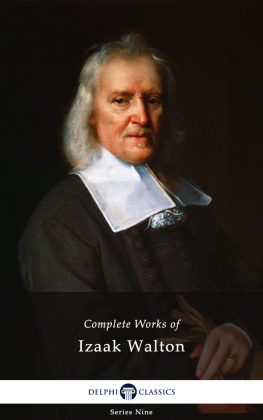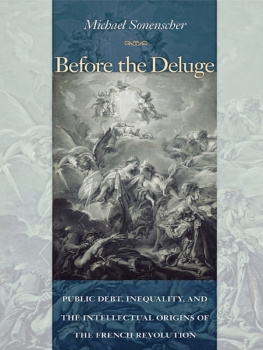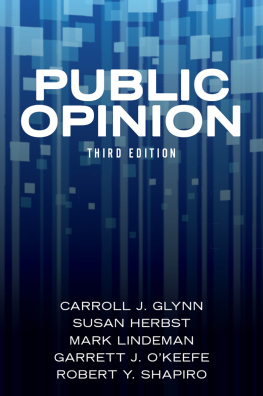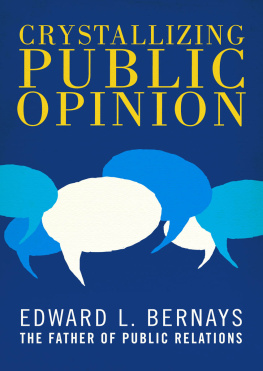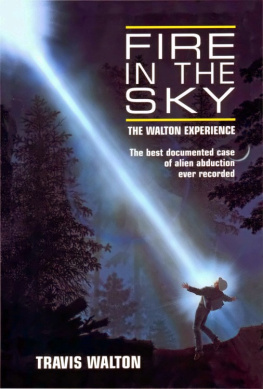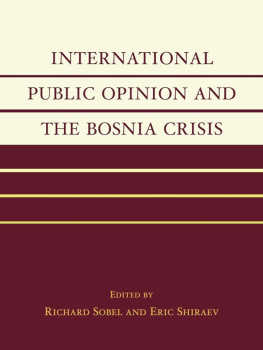Walton - Policing Public Opinion in the French Revolution
Here you can read online Walton - Policing Public Opinion in the French Revolution full text of the book (entire story) in english for free. Download pdf and epub, get meaning, cover and reviews about this ebook. year: 2009, publisher: Oxford University Press, Incorporated, genre: Politics. Description of the work, (preface) as well as reviews are available. Best literature library LitArk.com created for fans of good reading and offers a wide selection of genres:
Romance novel
Science fiction
Adventure
Detective
Science
History
Home and family
Prose
Art
Politics
Computer
Non-fiction
Religion
Business
Children
Humor
Choose a favorite category and find really read worthwhile books. Enjoy immersion in the world of imagination, feel the emotions of the characters or learn something new for yourself, make an fascinating discovery.
Policing Public Opinion in the French Revolution: summary, description and annotation
We offer to read an annotation, description, summary or preface (depends on what the author of the book "Policing Public Opinion in the French Revolution" wrote himself). If you haven't found the necessary information about the book — write in the comments, we will try to find it.
Walton: author's other books
Who wrote Policing Public Opinion in the French Revolution? Find out the surname, the name of the author of the book and a list of all author's works by series.
Policing Public Opinion in the French Revolution — read online for free the complete book (whole text) full work
Below is the text of the book, divided by pages. System saving the place of the last page read, allows you to conveniently read the book "Policing Public Opinion in the French Revolution" online for free, without having to search again every time where you left off. Put a bookmark, and you can go to the page where you finished reading at any time.
Font size:
Interval:
Bookmark:


Oxford University Press, Inc., publishes works that further Oxford Universitys objective of excellence in research, scholarship, and education.
OxfordNew York
AucklandCape TownDar es SalaamHong KongKarachi
Kuala LumpurMadridMelbourneMexico CityNairobi
New DelhiShanghaiTaipeiToronto
With offices in
ArgentinaAustriaBrazilChileCzech RepublicFranceGreece
GuatemalaHungaryItalyJapanPolandPortugalSingapore
South KoreaSwitzerlandThailandTurkeyUkraineVietnam
Copyright 2009 by Oxford University Press, Inc.
Published by Oxford University Press, Inc.
198 Madison Avenue, New York, New York 10016
www.oup.com
Oxford is a registered trademark of Oxford University Press
All rights reserved. No part of this publication may be reproduced, stored in a retrieval system, or transmitted, in any form or by any means, electronic, mechanical, photocopying, recording, or otherwise, without the prior permission of Oxford University Press.
Library of Congress Cataloging-in-Publication Data
Walton, Charles, professor of history.
Policing public opinion in the French Revolution : the culture of calumny and the problem of free speech / Charles Walton.
p.cm.
Includes bibliographical references and index.
ISBN 978-0-19-536775-1
1. Freedom of speechFranceHistory.2. CensorshipFranceHistory.3. Civil rightsFranceHistory18th century.4. FranceHistoryRevolution, 17891799.I. Title.
JC599.F8W35 2009
303.376094409033dc222008008549
For Alice
If this study succeeds in shedding light on the freedom of expression during the French Revolution, it is thanks to the ideas and opinions others have shared freely with me over the years. My greatest thanks go to Robert Darnton, my dissertation advisor, who has followed the progress of this project from its earliest stages. His incisive comments and support, not to mention his own work, have been immensely helpful. I also owe many thanks to David Bell, who has read several drafts of this study, offering useful insights each time. Phil Nord and Peter Lake read this work in its form as a dissertation and provided valuable suggestions. I am indebted to them both.
I would also like to convey my gratitude to my undergraduate mentors, Carla Hesse and Susanna Barrows, who inspired my interest in French cultural history at the University of California, Berkeley. Unsurprisingly, it was in Berkeleya place where controversies and struggles over free speech never seem to exhaust themselvesthat I became interested in the issue. It was mostly in France, however, that this project developed, and I owe Paul Cohencohort from Princeton, camarade in Parisenormous thanks for his frequent and careful readings of my work. Stephen Clay deserves thanks for alerting me to the importance of calumny during the Revolution and for sharing his archival expertise when I was still trying to figure out how to read an inventory. I am grateful to Alan Forrest and Dena Goodman for their kindness and generosity in helping me get past some obstacles early on in the project.
Several friends and colleagues have read and commented on earlier drafts of all or parts of this book, and I would like to express my gratitude to them all: Julia Abramson, David Andress, Mihaela Bacou, Ariane Chebel dAppollonia, Charly Coleman, Jennifer Heuer, Russell Jacoby, Andrew Jainchill, Lucien Jaume, Colin Jones, Nina Kushner, Thomas Kaiser, Laura Mason, Anne McCall, John Merriman, Joel Migdal, Cristina Nehring, Jeremy Popkin, Robert Post, Allan Potofsky, Jeffrey Ravel, Neil Safier, Jennifer Sessions, Todd Shepard, Francesca Trivellato, and David Troyanski. I would also like to thank those who have shared their ideas and advice with me over the years: Hilary Bernstein, Gregory Brown, Jonathan Cole, Danielle Haase-Dubosc, Annie Duprat, Arlette Farge, Amy Freund, Bernard Gainot, Bryan Garsten, Glenda Gilmore, Jeff Horne, Michael Kwass, Herman (Gene) Lebovics, James Livesey, Kenneth Loiselle, Jill Maciak Walshaw, Jean-Clment Martin, Anne McCall, Renaud Morieux, Samuel Moyn, Gerald Neuman, Brian Ogilvie, Thierry Rigogne, Cliff Rosenberg, Terry Whiteside, Pierre Serna, Patrick Weil, and Isser Woloch. Several colleagues at Sciences Po, Paris, the University of Oklahoma, Norman, and Yale University have pushed me to think about the problem of calumny and free speech beyond the context of the French Revolution, among them, James Cane-Carrasco, Joanne Freeman, Lillian Guerra, and Melissa Stockdale. I have also learned much from the students enrolled in my seminar on the history of free speech in the Atlantic World, which I taught at Sciences Po and Yale. Their passionate interest in the subject served as a motivating reminder of why I chose this topic in the first place.
Several of the events discussed in grew out of conversations with the late Edna Lemay, who shared her extensive knowledge about the early revolutionary National Assemblies with me. Daniel Roche provided me with his transcriptions of the unpublished parts of Jacques Mntras journal, and I extend my thanks to him. Philippe de Carbonnires deserves thanks for the generous time spent helping me find appropriate illustrations for this book. Thanks go to my friend and neighbor in Paris, Daniel Laberthonnire, for the many hoursdays, reallyassisting me in formatting my data on the cahiers de dolances. I would like to thank my editor, Susan Ferber, for taking on this project shortly after I had completed my dissertation and for her unflagging support in seeing the project through. I also appreciate the valuable comments of OUPs anonymous readers of this manuscript.
Research for this book has been generously funded by the Social Science Research Council, the Center for International Studies and the Council on Regional Studies of Princeton University, the Hilles Fund and the European Studies Council of Yale University, and the Oklahoma Humanities Council. I appreciate their support.
Finally, I would like to express my gratitude to my parents as well as to friends and family in France who offered me their help and have kept my motivation from flagging: Jean-Marc Commun, Soria Hafed, Rebecca Walton and Jean-Christophe Giron, Smain Benouahlima, and the Gineste family. Ariane Chebel dAppollonia and Michael Montgomery offered me their sympathetic ears and intelligent reflections over the years. One of my greatest debts is to Joseph Gonzalez, a historian of early modern Europe and longtime friend, who inspired my interest in history at a very early stage. Lastly, I owe warm thanks to Yacine Khezzari.
AN | Archives nationales de France |
AP | Archives parlementaires: Recueil complet des dbats lgislatifs et politiques des Chambres franaises imprim par ordre du corps lgislatif, ed. Jrme Mavidal and mile Laurent, 1st series, 82 vols. (Paris: P. Dupont, 18671990) |
BNF | Bibliothque nationale de France |
BP | Bibliothque de la Poste |
ACP | Actes de la Commune de Paris pendant la Rvolution, ed. Sigismond Lacroix, 1st and 2nd series, 19 vols. (Paris: L. Cerf, 18941955) |
APP | Archives de la Prfecture de police, Paris |
AMB | Archives municipales de Bordeaux |
AMM |
Font size:
Interval:
Bookmark:
Similar books «Policing Public Opinion in the French Revolution»
Look at similar books to Policing Public Opinion in the French Revolution. We have selected literature similar in name and meaning in the hope of providing readers with more options to find new, interesting, not yet read works.
Discussion, reviews of the book Policing Public Opinion in the French Revolution and just readers' own opinions. Leave your comments, write what you think about the work, its meaning or the main characters. Specify what exactly you liked and what you didn't like, and why you think so.

